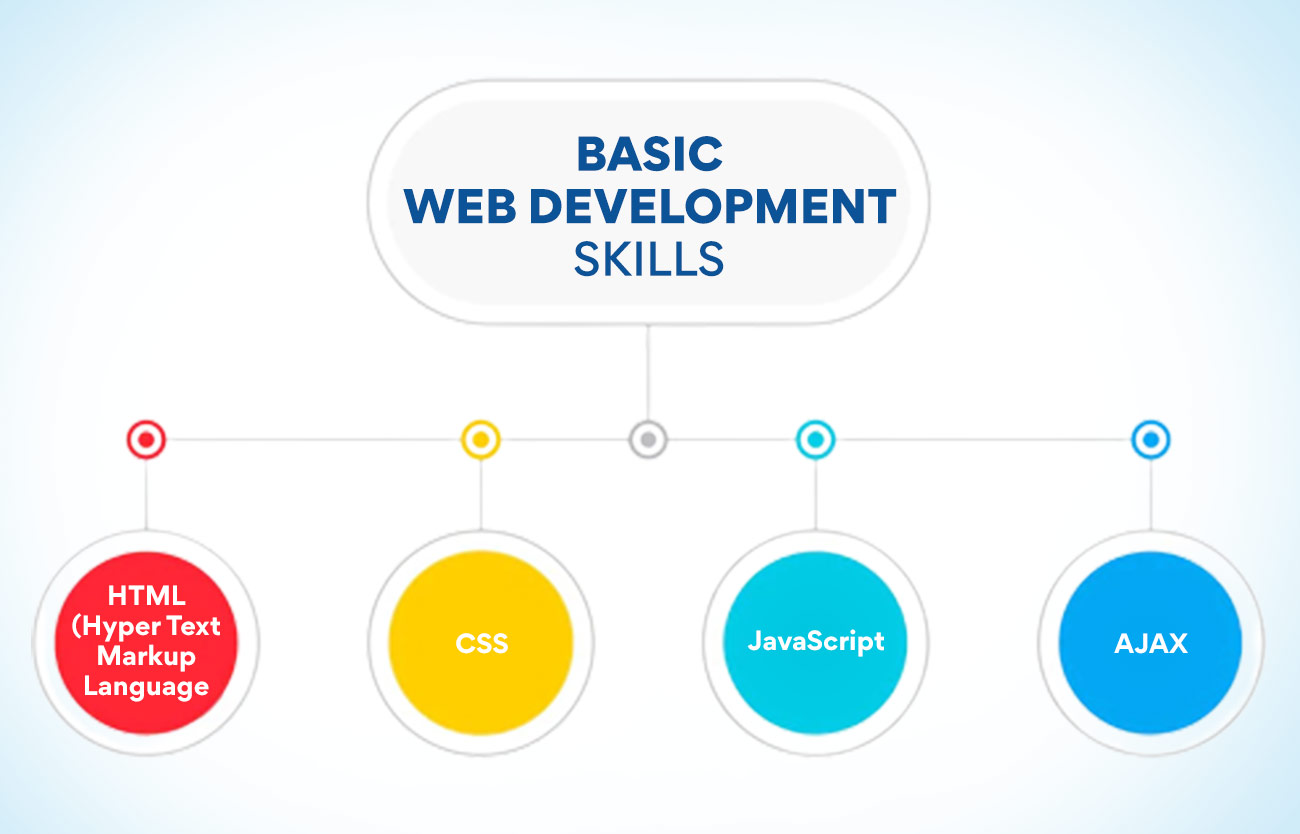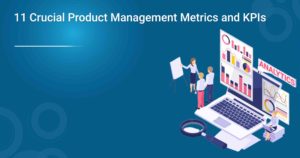Product managers are the backbone of any successful product. They are responsible for ensuring that the product meets customer needs, is profitable, and is delivered on time. To be a proficient product manager, you need to have a plethora of skills. From project management to business analysis, you need to be able to wear many hats. This blog post will explore the top 10 product manager skills you need to succeed as a product manager (PM). We will also provide tips on how you can develop each of these skills.
Critical Thinking & Analytical Skills
As a PM, your responsibilities lie in gathering requirements, managing product roadmaps and release cycles, and working with engineering teams to ensure that features are delivered on time and within scope. To be triumphant in this role, you will need to have strong critical thinking and analytical skills.
You will need to tackle complex problems and split them into smaller pieces that can be solved. You need to think with a creative mind and come up with innovative solutions that cater to the problems. Furthermore, you will need strong data analysis skills to make informed decisions about what features to build and when to release them.
Leadership Skills
One of the most preferred product manager skills is being able to position yourself as a leader. To be a great and virtuous product manager, you need to have excellent leadership skills. You need to be able to inspire and motivate your team, and you need to be able to make tough decisions when necessary.
You must effectively communicate with all stakeholders, including upper management, customers, and other teams within the company. It’s essential to clearly articulate your vision for the product and get buy-in from everyone involved.
Finally, you need to be able to keep everything organized and on track. A product manager must wear many hats, and it can be challenging to keep everything straight. But if you can maintain a clear roadmap and always keep your eye on the prize, you will set the trail for your success.
Problem-Solving Skills
Product managers are responsible for a lot of decision-making. Whether it’s deciding which features to build next or how to solve a customer issue, product managers need to be able to think critically and solve problems quickly.
One way to improve your problem-solving skills is to practice brainstorming. Brainstorming is a technique to come up with many ingenious ideas without judging or critiquing them. It is a great way to generate new and creative solutions to problems.
Another tip is to take some time before making a decision. Once you have all the information you need, take a step back and sleep on it. It will allow you to look at the problem with fresh eyes and make a more informed decision.
If you need help with how to solve a problem, try reaching out to your network of contacts. There are chances that someone has faced a similar issue before and can offer some helpful advice.
Never hesitate to communicate with your team regarding any bottlenecks you are facing. If you’re feeling overwhelmed, enlist the help of your colleagues – they may have some great ideas that you haven’t thought of yet!
Also Read: What is Product Management?
Communication Skills
Product managers must be able to communicate with various stakeholders, including customers, developers, and other product team members. As a product manager, you need to convey your insights into the product and rally others around it. You listen to feedback and incorporate it into their plans.
Product managers need to have strong writing and verbal skills to be effective communicators. You should be able to distil complex ideas into clear and concise language. There should be no hindrance in comfortably presenting your ideas in front of large groups.
Good listening skills are just as important as good speaking skills for product managers. You should understand the customers’ and team members’ needs and wants, be open to feedback, and be willing to course-correct when necessary.
Time Management Skills
As a PM, one of your key responsibilities is to ensure that projects are completed within the scheduled time and budget. Strong time management skills are a must to get this done effectively.
Some tips for honing your time management skills include:
- Prioritize your tasks and make a schedule. It will help you focus on the most important tasks and ensure that they are completed promptly.
- Delegate tasks to others when possible. It will free up your time to focus on more pressing matters.
- Learn to say “no”. It’s impossible to do everything, so learn to politely decline requests that will take up too much of your time.
- Take breaks when needed. Working non-stop will only lead to burnout – take some time out for yourself now and then to recharge.
Market Research Skills
Among all the top product manager skills, the skill to conduct extensive market research is the most crucial. Product managers must ensure that the products they represent meet the needs of their target markets. You can achieve this by conducting market research to identify those needs and then developing strategies to address them.
Market research skills are essential for product managers to be successful. These skills are necessary for product managers to identify their target markets’ needs or develop strategies to address them.
Some of the key market research skills that product managers need include:
- The ability to identify target markets: Product managers need to identify who their target market is and what needs they have. This information can be gathered through various methods, such as surveys, interviews, and focus groups.
- The ability to collect and analyze data: Once the target market has been identified, product managers need to collect data about them to determine their needs. This data can come from various sources, such as customer surveys, sales data, and social media analytics. Once collected, product managers need to be able to analyze this data so that they can identify patterns and trends.
- The ability to develop marketing plans: Based on the findings from market research, product managers need to develop marketing plans that will address the needs of their target market. These plans should include strategies for promoting the product, pricing it competitively, and distributing it effectively.
Writing Technical Specs Skills
Product managers are responsible for developing and managing products throughout the product life cycle, from ideation to launch and post-launch. A successful product development professional possesses various product manager skills, including writing technical specs.
Technical specs are an essential component of any product development process. They provide clear and concise instructions for developers, engineers, and other stakeholders involved in building a product. With well-written technical specs, it is possible to bring a new product to market.
Writing technical specs takes work. It requires a deep understanding of how products are built and work. A good technical writer must be able to translate complex concepts into simple language that all stakeholders can understand.
Here are some tips for writing great technical specs:
Write for your audience – Keep your target audience in mind when writing technical specs. Make sure the language you use is appropriate for their level of expertise.
Be clear and concise – Try to cram only a little information into your technical specs. Be clear and concise in your writing so that stakeholders can easily understand what you’re trying to communicate.
Use diagrams and illustrations – Sometimes, a picture is worth a thousand words. Use graphs and illustrations to help explain complex concepts in your technical specs.
Focus on the details – When writing technical specs, it’s essential to focus on the details. Make sure every aspect of the product is accounted for in your specifications.
Basic Web Development Skills
Web development is a critical skill for product managers. It’s not enough to understand what developers are talking about – you need to be able to talk their language and understand the trade-offs they face every day.
At its core, web development is all about building websites. But there’s more to it than just knowing how to code. A good web developer must strongly understand design principles, user experience, and performance optimization.
Here are some basic web development skills that every product manager should have:

- HTML (Hyper Text Markup Language: It is the standard markup language for creating web pages. Every website is built with HTML.
- CSS: Cascading Style Sheets are used to style HTML pages. They give website designers control over the look of their site.
- JavaScript: JavaScript is a programming language that runs in the browser. It makes websites interactive and can be used to build web applications.
- AJAX: Asynchronous JavaScript and XML is a technique for loading data from the server without refreshing the page. This makes web applications faster and more responsive.
Data Analysis Skills
Product managers are responsible for analyzing data to make sound decisions about product development and marketing strategies. They must be able to understand and draw insights from data sets and communicate their findings to other team members.
Excellent data analysis skills are essential for any product manager who wants to be successful. Follow these important things you can do to improve your own data analysis skills:
- Practice analyzing data sets on your own time. It will help you get comfortable with working with large amounts of data and finding key patterns and trends.
- Take some online courses or attend workshops on data analysis. It can help you learn new techniques and tools that you can use in your role as a product manager.
- Stay up-to-date on the latest software developments in the field of data analysis. This way, you’ll use the best tools available to analyze data sets and make sound decisions based on your findings.
Also Read: What Are The Reasons of Variations in Product? Causes & Reasons
Microsoft Office Skills
Product managers must be proficient in Microsoft Office applications such as Word, Excel, and PowerPoint. These skills are essential for creating product documentation, presentations, and marketing materials. There are instances where a product manager may also need to use other Microsoft Office applications such as Outlook and OneNote.
Being proficient in Microsoft Office applications shows that you can use basic office productivity software. It is a valuable skill for product managers because it demonstrates your ability to communicate and collaborate with others in a business setting.
While it’s optional to be an expert in all of these applications, product managers should at least have a working knowledge of how to use them. If you’re not already proficient in Microsoft Office applications, these are a few smart things you can do to improve your skills:
- Use online tutorials to learn the basics of each application.
- Practice using each application on your own time. It will make you flexible with using them for work-related tasks.
- Keep yourself updated with the latest features and updates for each application. It will allow you to use the latest tools and features when working on product-related tasks.
- Avail of Microsoft certification that will perfectly align with the product manager’s job description and responsibilities. Look for online certification courses that focus on product management tools and techniques.
The Bottom Line
Product managers are the key players in any company that designs, creates, and sells products. They are responsible for ensuring that the product meets the needs of the customer and that it is profitable for the company.
To thrive in the product management field, you need to have the right blend of skills. Product manager skills are pivotal in product management, from product development to product marketing and strategy.
Want to become a product manager who excels at their job? We have a course just for you. Our Advanced Executive Certificate in Product Management is designed to help product managers hone their skills and advance their careers.
This course will prepare you with product management fundamentals, product development, product conceptualization & planning, and more. Check out our course today!
More Information:
Product Management Frameworks Every PM Must Know
Product Management Learning- Key Areas






_1668670867.jpg)





















